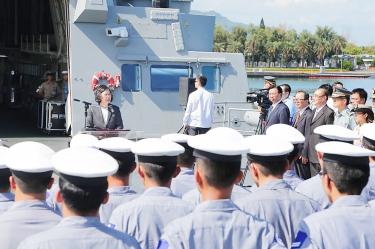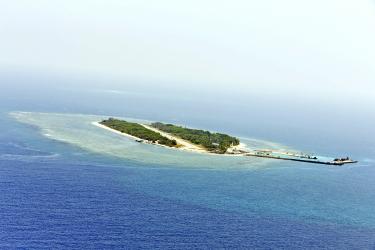President Tsai Ing-wen (蔡英文) yesterday vowed to demonstrate the nation’s determination to safeguard its national interests as she boarded a Kang Ding-class frigate at the naval port in Kaohsiung’s Zuoying District (左營) ahead of its mission in the disputed South China Sea.
|
|||
|
|
|||
| Page 724 of 1529 |
Newsflash
The radar-lock that a Chinese frigate put on a Japanese warship was “dangerous” and “provocative,” Japanese Prime Minister Shinzo Abe said yesterday, as tensions rose in a territorial row. “It was a dangerous act that could have led to an unpredictable situation,” Abe told parliament. “It is extremely regrettable. We strongly ask for their self-restraint in order to avoid an unnecessary escalation.” The hawkish prime minister, who took office in late December last year following a landslide election victory, described the radar-locking as a “unilateral provocative action by the Chinese side.” |













